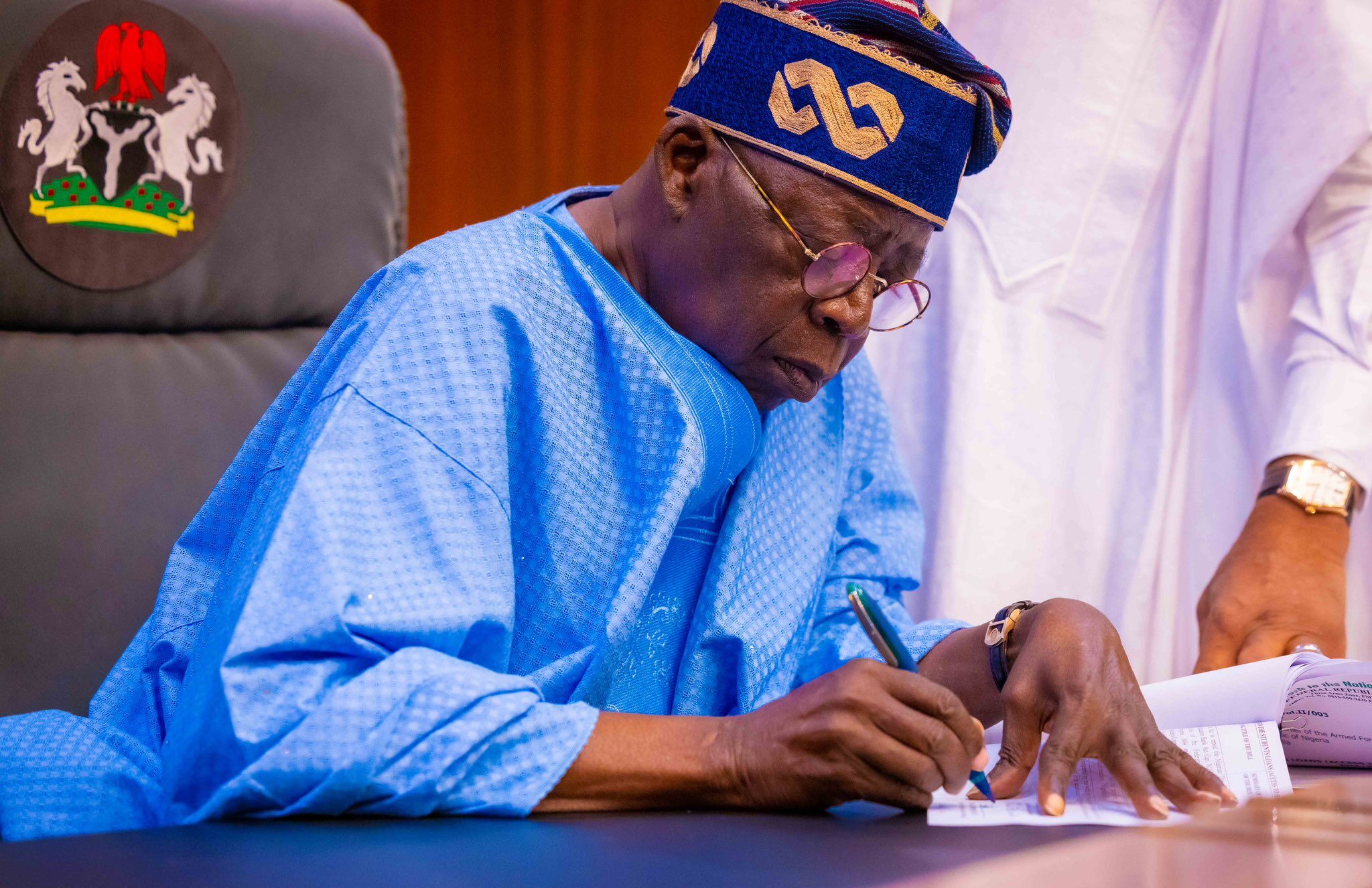Taxes are compulsory levies that individuals and businesses pay to the government to generate revenue for its expenditure.
They are levied typically on property, income, goods and services and other economic activities.
In a recent development, the president of Nigeria, Bola Ahmed Tinubu, signed four Executive Orders which include the suspension of the five percent excise tax on telecommunications, and the excise duties escalation on manufactured goods.
The president also signed the Finance Act Order 2023 which defers the commencement date of the changes contained in the Act from May 23, 2023, to September 1, 2023; the Customs Excise Tariff Amendment Order and suspension of the newly introduced Green Tax on Single Use Plastics and the Import Tax Adjustment levy on certain vehicles.
- Community accuses traditional rulers of land grabbing in Bauchi
- NANS rejects fee hike in higher institutions, threatens protest
The orders changed and reversed some policies made by the last administration to bring temporary relief to Nigerians.
This was revealed during a State House press briefing on presidential interventions on major concerns of manufacturers and other stakeholders due to some recent tax changes, addressed by Dele Alake, presidential special adviser on special duties, communications and strategy on July 6, 2023.
What you should know
Excise duty is a tax on certain goods produced or sold within a country and other activities as may be specified in the enabling law including services.
Finance Act Order 2023
The Finance Act 2023 was signed by former President Buhari during his administration and the effective date stated was May 1, 2023.
However, the new order signed by President Bola Ahmed Tinubu postpones the effective date to September 1, 2023.
The 2023 budget speech states that the Act focuses on tax equity reforms, climate change/green growth, job creation/economic growth, reforming tax incentives, and revenue generation/tax administration.
Some of the key changes the Finance Act introduced are taxation of gains on the disposal of digital assets including cryptocurrency at the rate of 10 percent, deletion of investment allowance on plant and equipment, all services including telecommunication services are liable to excise tax at rates to be prescribed by the president, imposition of 0.5 per cent levy on goods imported into Nigeria from outside Africa while companies appointed to withhold Value Added Tax (VAT) at source are to remit such VAT to the Federal Inland Revenue Service (FIRS) on or before the 14thday of the following month among others.
5 Percent Excise Tax on Telecommunication Services
In Nigeria, the telecommunication excise tax took effect on April 1, 2022, with a 90 days grace period granted for the implementation. Based on the order, the tax is chargeable on all services regulated by the Nigerian Communications Commission (NCC) listed as prepaid and postpaid services at the rate of five per cent for 2022, 2023 and 2024 but the newly signed executive order by the president suspends the 5 per cent telecommunication excise tax.
Customs Excise Tariff (Variation) Amendment Order 2023
The president also moved the commencement date of the customs and excise tariff from March 27, 2023, to August 1, 2023.
The tax changes in the customs excise tariff include an increase in excise duty on alcoholic beverages. The previous administration also introduced an excise duty of N10 per litre on aerated water, beer, and alcoholic wines and stout, whisky, brandy and vodka.
Green Taxes Suspension
The last administration introduced a 10 per cent excise duty on Single Use Plastics (SUPs) such as plastic containers, films, and bags but President Tinubu suspended the tax in order to create a business-friendly environment for Nigerians.
During a TV interview, Taiwo Oyedele, a fiscal policy partner and Africa tax leader at PricewaterhouseCoopers (PwC), noted that the executive orders mean Nigerians would not have to pay more for certain critical goods and services.
Oyedele said the excise duty on telecommunication by the previous administration posed a legal problem considering that Nigeria had never had excise on services.
“What the president has done is to suspend the tax and perhaps have a more meaningful conversation on impact assessment and decide whether we want it in the current format, a different format or we don’t want it all,” he said.
In essence, it means that the 5 per cent tax was never collected so there was no impact on Nigerians and the suspension by the president has stopped a possible increase in the cost of data and airtime.
He further stated that the suspension of the tax on single-use plastics will prevent possible inflation as Nigerians will not pay more for plastic bags and bottles.
In addition, he said with the excise duty escalation on tobacco, cigarettes, and alcoholic beverages, Nigerians would have to pay more for these products. But because they are manufactured locally and the tax has been suspended on locally manufactured products, the purchase cost would not go up.
This Explainer is produced in partnership with the Centre for Democracy and Development (CDD)

 Join Daily Trust WhatsApp Community For Quick Access To News and Happenings Around You.
Join Daily Trust WhatsApp Community For Quick Access To News and Happenings Around You.


